Opeth's Martín Méndez: my top 5 tips for bassists
Jazz Bass-toting prog-rocker delivers low-end learnings
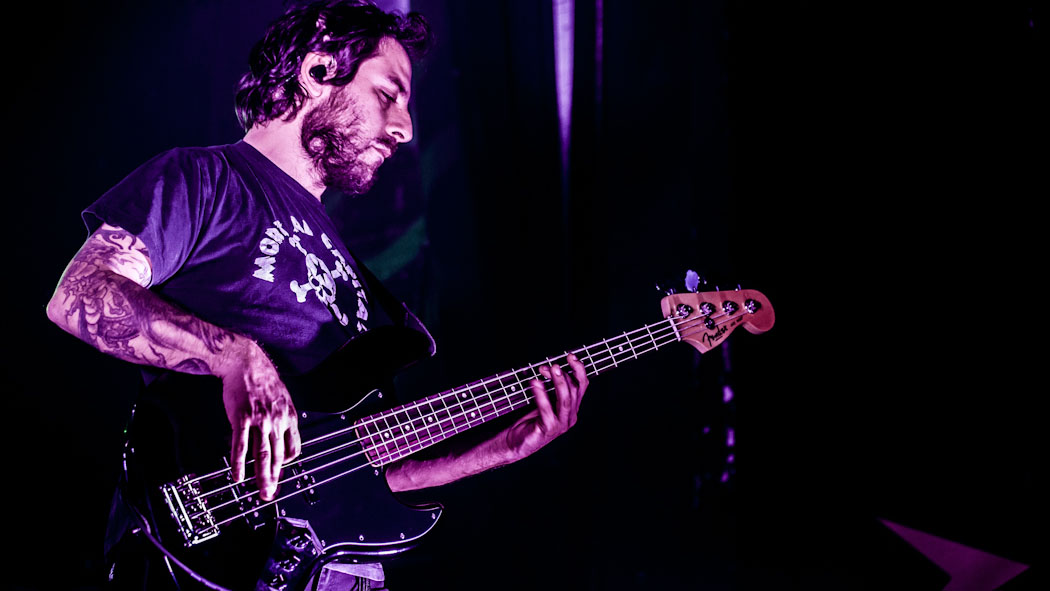
Introduction
"I can't have been much more than a year old when my father began teaching me how to play the bass," begins Opeth bassist Martin Mendez.
It definitely shows - when you watch the Swedish progressive metal masters perform live, Mendez is the one most lost in his own world, rarely glancing at what his hands are doing. It's almost like he's stuck in a trance and the crowds aren't even there...
When quizzed over the secret behind performing long, complex pieces of music without seeming to break a single sweat he admits, "Our kind of music takes a while to soak into the mind. You have to repeat things a lot of times to really get it. And even once you've memorised every note to play, warming up is still very important - especially when playing live.
"I usually start about an hour before the show, just playing along to little bits of the songs. Back in the day, I never used to bother - I'd just jump out on stage and I ended up getting these painful cramps during the set, which definitely made things difficult! So from then on, I started making sure I was physically prepared and mentally relaxed before any performance."
Last month, the quintet released their 12th full-length, Sorceress, and in just a few weeks they'll be headlining their biggest UK show yet at London's Wembley Arena.
Mendez is one bassist whose pedalboard hasn't been growing in tandem with the stages he's been gracing, instead opting for a more direct and organic sound from his Fender Jazz Bass and Super Bassman amp, with little in between...
"Tone is so important," nods Mendez, who tends to dial in an earthy, low-end punch for the bedrock beneath guitarists Mikael Akerfeldt and Fredrik Akesson.
"I think my sound fits in well - you can really hear the bass cut through with a kind of wooden sound. When the frequencies feel more filled, it makes a bigger picture.
"Other brighter sounds might work well for different styles, but it's not my kinda sound and I don't think it would fit into this style of music."
Especially with two guitarists, keys, lead and backing vocals taking up the higher mids...
Understanding the spectrum is how you can make the magic of the bass shine through the music
"Exactly: understanding the spectrum is how you can make the magic of the bass shine through the music," he continues.
"It's very important to have good gear, but you don't want to go mad with too much stuff. I believe 50 per cent or even 70 per cent of the sound is in your fingers; it's already in your playing...
"For example, your vibrato is one of many things that shape your tone before the sound has even come out of your instrument. I would listen to certain guys like Jaco Pastorius who I felt had a unique style and learn from that.
"Of course, amplifiers and speakers and pedals do change your sound a bit, but you don't need to get all of the latest gear. In my eyes, a really good player should be able to make any instrument sound good."
On that note, the bass player explains his five steps towards musical enlightenment...
Opeth play SSE Arena, Wembley on 19 November, with support from Anathema. Tickets are available now from Live Nation.
Don't Miss
Opeth's Fredrik Akesson: the 11 records that changed my life
Opeth's Mikael Akerfeldt: my top 9 tips for guitarists
Prog round table: Steven Wilson, Mikael Akerfeldt and Bruce Soord in conversation
Mikael Akerfeldt on smashing his first guitar and onstage accidents
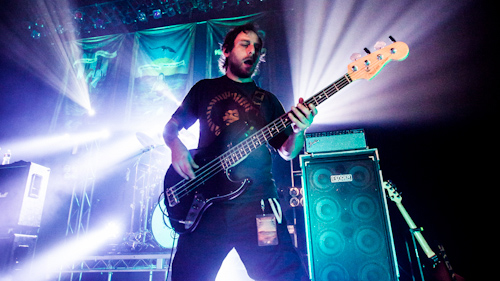
1. Learn your scales (then forget them)
"Playing in a band like Opeth, you have to know your scales. When the guitars are voicing minor chords, you can't just play whatever, you know?
"So I try to know all that I need - but once I got to a certain point, I started trusting my ears above all else. I don't look at the books all the time; I'm not really interested in that kind of playing any more.
"When I was younger, I used to study all of it, but I never really chose to rely on it moving forwards. Some people do and it can sound all right, but maybe a bit same, same. I prefer to let my brain have fun with it and follow what I hear in my head."

2. Take more risks
"I was only 17 when I moved halfway across the world from Uruguay to Sweden. All I wanted to do was play in a heavy metal band; I didn't really know what I was doing, to be honest!
"So when me and [ex-Opeth drummer] Martin Lopez got there, we soon heard Opeth were looking for a new rhythm section. It felt like a great opportunity because Opeth were one of the few bands I really liked back then.
I couldn't speak any English or Swedish at the time, which was pretty difficult!
"I remember [1996's] Morningrise had just come out when we got to Sweden, and I really loved that album because it sounded so different. So we figured let's hook up and have a jam. I couldn't speak any English or Swedish at the time, which was pretty difficult!
"I remember Mikael telling me to close the door and I just carried on playing, because I had no idea! So I looked at him mumbling, 'Yeah' going 'boom boom boom' on the bass. It was difficult, you know, ha ha! I think I learned Swedish pretty fast in the end."
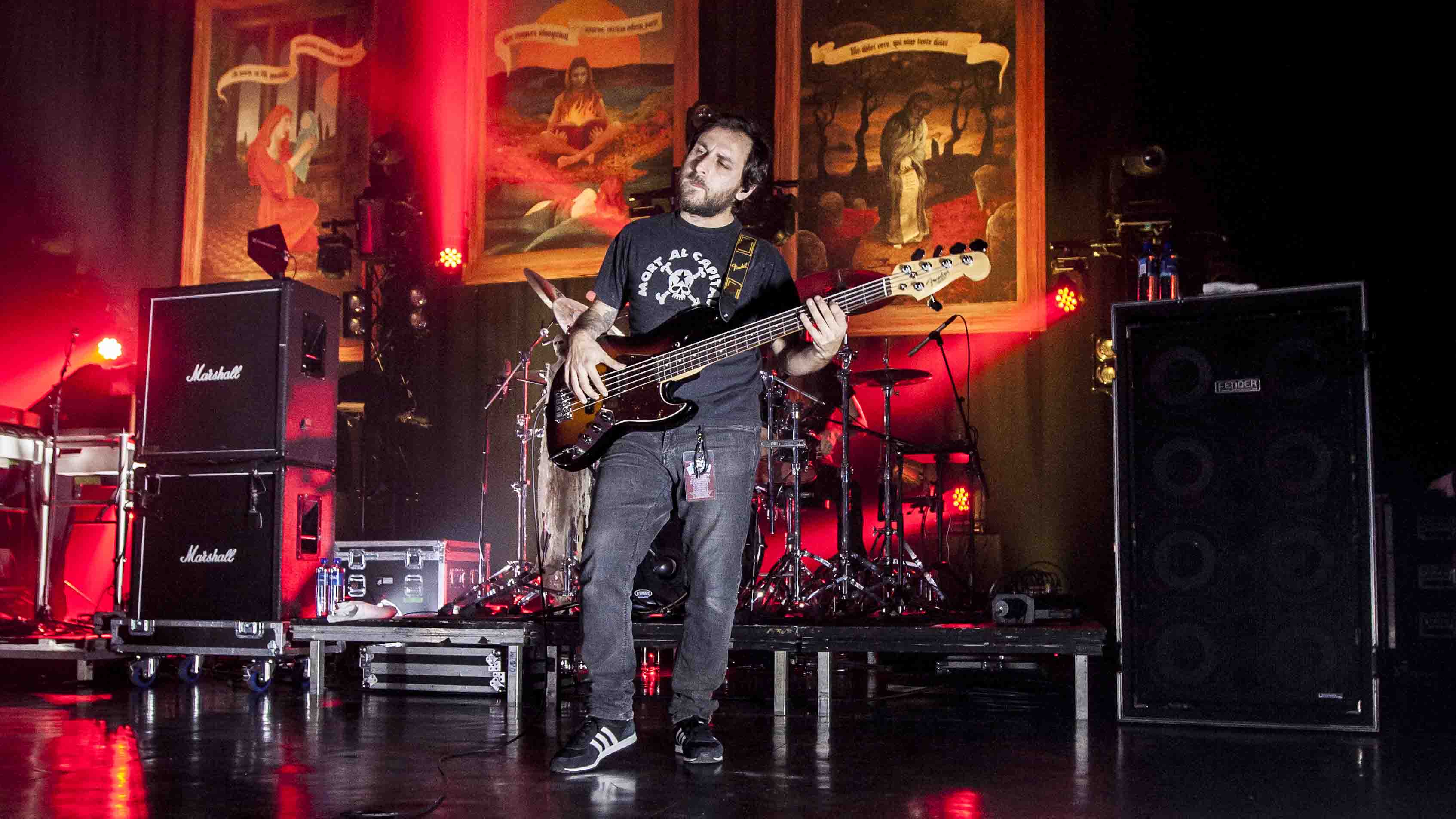
3. "Just play from the heart" (the penny will drop)
"The first lessons I ever had was with this guy from my home country; he was an amazing player but he didn't know anything about music theory, ha ha! And I still remember, to this day, his advice at the end of each lesson would always be, ‘Just play from the heart.'
"I was a kid that really wanted to get better, and that wasn't quite the advice I was looking for. I didn't really understand it at all… not until much later on. And funnily enough now, it feels like the most important lesson in my years as a musician!"
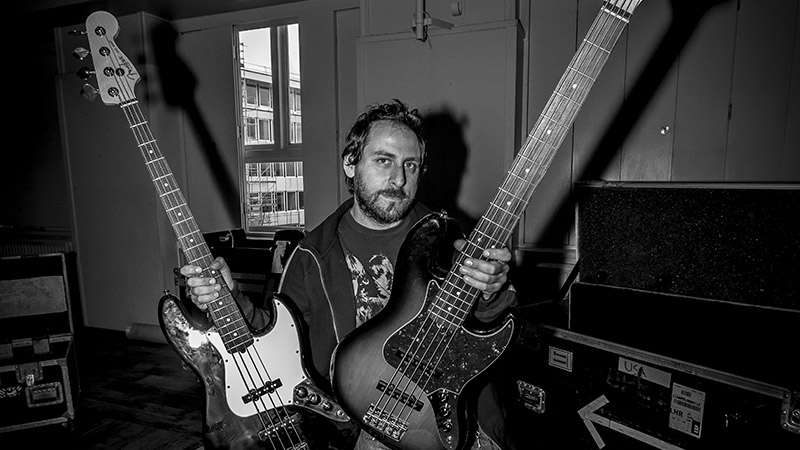
4. Watch that need for speed
"A lot of metal players like to be impressed; for them it's all about who plays the fastest and that kind of stuff, but I don't think that's the way to go about music.
"Of course, when I was a 15-year-old I liked playing all that crazy stuff, slapping away really quick. But it's important to bear in mind you can't really use much of it in music later on… unless you play funk! It's good to have the technique, but a lot of musicians place too much importance on that stuff.
"One of the most important things is to keep your ears open. Listen to all kinds of music - I've always enjoyed everything from the acoustic folk music of my home country to jazz and blues to metal. Never get stuck in one style and play only that."
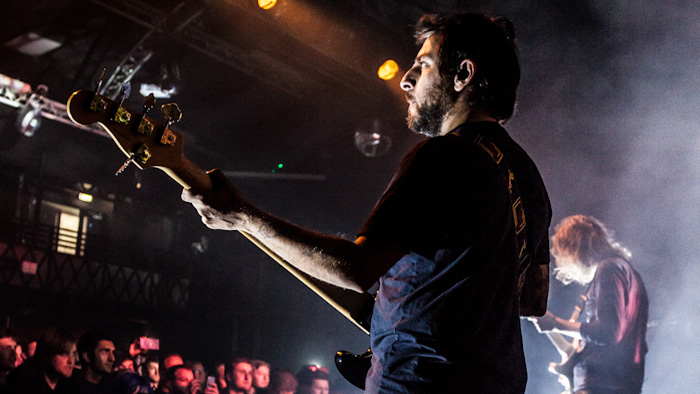
5. Find the best of the best
"Playing with very good musicians will always improve your playing. I've been lucky enough to play with great musicians almost all my life. I always kinda felt like the little one... but not any more, ha ha!
"I know for a fact doing this is what helped me get better, so I would recommend anyone reading this to get out there and find the best people they can. You learn a lot!
"I feel very lucky playing with the other guys in Opeth. I love the music, and it's been developing my playing the whole time... in fact, I think we've all improved with every album. It's a very rewarding band to be in!"
Don't Miss
Opeth's Fredrik Akesson: the 11 records that changed my life
Opeth's Mikael Akerfeldt: my top 9 tips for guitarists
Prog round table: Steven Wilson, Mikael Akerfeldt and Bruce Soord in conversation
Mikael Akerfeldt on smashing his first guitar and onstage accidents
Amit has been writing for titles like Total Guitar, MusicRadar and Guitar World for over a decade and counts Richie Kotzen, Guthrie Govan and Jeff Beck among his primary influences. He's interviewed everyone from Ozzy Osbourne and Lemmy to Slash and Jimmy Page, and once even traded solos with a member of Slayer on a track released internationally. As a session guitarist, he's played alongside members of Judas Priest and Uriah Heep in London ensemble Metalworks, as well as handling lead guitars for legends like Glen Matlock (Sex Pistols, The Faces) and Stu Hamm (Steve Vai, Joe Satriani, G3).
